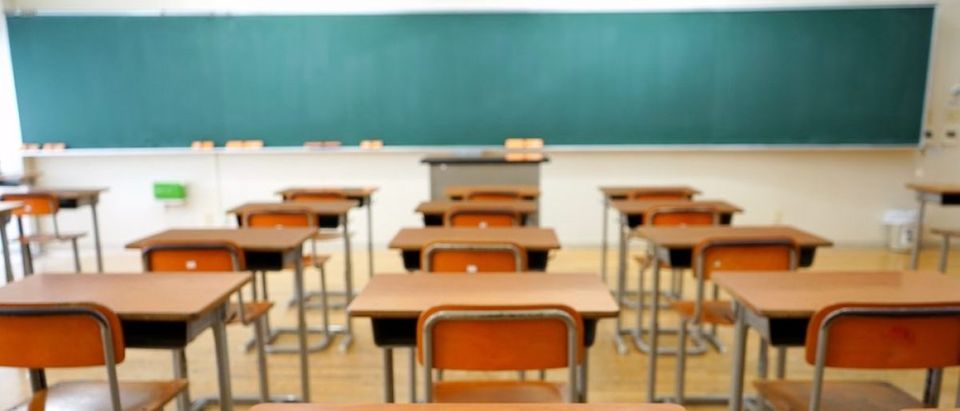During the week of January 22-28, we mark National School Choice Week and efforts to empower parents to choose the best public or private education option for their children.
For years, school choice efforts have mainly focused on the poor performance of traditional public schools. Growing political bias in the classroom, however, is just as important a reason to give parents the ability to choose where and how their children receive their schooling.
While rising for some time, the just concluded presidential campaign seemed to supercharge bias in the classroom.
For instance, hyperbolic comparisons of Donald Trump to Adolf Hitler took place in classrooms coast to coast.
In Mountain View, California, a history teacher was suspended after he lectured students on the parallels between the rise of Trump and Hitler. Both Trump and Hitler, said the teacher, wanted to “make their countries great again.” Supporting national renewal evidently put Trump on the slippery slope to genocide.
In North Carolina, an English teacher made students compare speeches by Trump and Hitler. During a lesson, the teacher was recorded saying, in reference to Trump, “Basically, the only people who seem to be safe from this guy are white Christian males.”
It was not only individual teachers who used their classrooms as political soapboxes.
In San Francisco, the teachers union issued an anti-Trump lesson plan that could be used by its 6,000 members. In a letter to school district staff by the plan’s author, social studies teacher Fakhra Shah, Trump is labeled a “racist and sexist man” who has “become president of our country by pandering to a huge racist and sexist base.”
The lesson plan itself is clearly unbalanced. For example, while students are asked to create a poster that would address Trump supporters and a poster that would address Clinton supporters, students are only asked to discuss the Trump poster through the lens of, “How we will not engage in dehumanizing those who dehumanize us.”
The resources recommended by the lesson plan include articles, reports and videos by hardcore leftist publications, organizations and individuals such as Mother Jones magazine, the Southern Poverty Law Center and producer/director Michael Moore.
Political bias in the classroom, however, is not limited to discussions of Donald Trump.
California’s new history and social studies curriculum framework is weighted overwhelmingly toward a liberal viewpoint on subject matter to be studied.
For example, pages and pages in the framework are devoted to identity politics, and the environmentalist, sexual, and anti-Vietnam War movements, with detailed and extensive bibliographical references. In contrast, the contemporaneous conservative movement, which succeeded in electing Californian Ronald Reagan as president, with its complex mixture of social, economic and national security sub-movements, is given cursory and passing mention, with no references provided.
Worse, the state curriculum framework ensures that this bias will be systemic throughout California public schools. Stanley Kurtz, senior fellow at the Washington-based Ethics and Public Policy Center, warns that California’s framework will likely spread across the country “as publishers forced to meet the demands of the most populous state offer their revised textbooks nationally.”
The bottom line is that politicizing the classroom negatively affects students. As The Economist points out, “Students who dissent from the teacher’s view may feel alienated from the discussion and uncomfortable expressing their ideas openly.”
Further, “Younger, more impressionable children with [undeveloped] understanding of politics may be confused if they hear their parents supporting candidate X while their teacher insists on candidate Y.”
The magazine concludes, “Either way, it seems a mistake to make political advocacy a main thrust of the school day.” However, if some schools insist on politicizing instruction, then children should be able to escape such indoctrination through school choice tools such as intra and inter-district transfer programs, charter schools, and private-school choice programs such as education savings accounts.
National School Choice Week is a good reminder that freedom to choose one’s school protects students’ freedom of political speech and thought and incentivizes public schools to respect the political views of students and parents.
Lance Izumi is Koret senior fellow in education studies and senior director of the Center for Education at the Pacific Research Institute.












